Best Vietnamese Pagodas: TOP 20 Places That Culture Seekers Should Not Miss
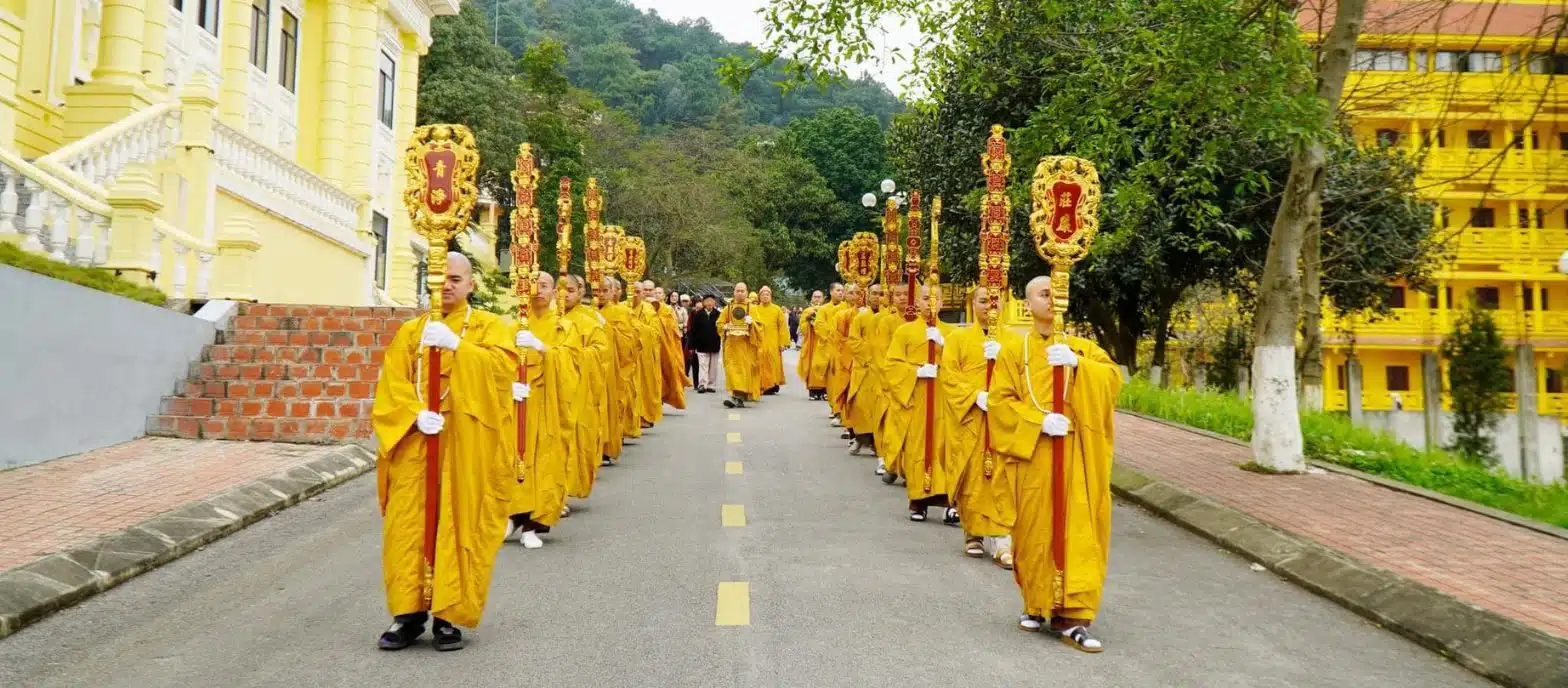
Vietnam’s soul is etched into the ancient timber and curved tile roofs of its sacred temples. For any traveller seeking to look beyond the vibrant street life and stunning landscapes, the journey into the heart of the nation’s culture inevitably leads to its Vietnamese Pagodas. These are not merely places of worship; they are living museums, architectural marvels, and serene sanctuaries that chronicle centuries of history, philosophy, and artistry.
An exploration of Vietnamese Pagodas is an exploration of the nation itself its resilience, its deep-seated spirituality, and its unique cultural fusion. From the misty mountains of the north to the fertile plains of the Mekong Delta, these sacred sites offer profound tranquility and a deep connection to the past. This definitive guide introduces the top 20 Vietnamese Pagodas and spiritual sites, creating a cultural roadmap for an unforgettable journey. Prepare to be captivated by the timeless beauty and spiritual depth of the best Vietnamese Pagodas.
Hanoi & The North: The Cradle of Vietnamese Buddhism
The Red River Delta is where the story of Vietnam’s great dynasties began, and its pagodas are among the oldest and most revered in the country.
1. Tran Quoc Pagoda (Hanoi)
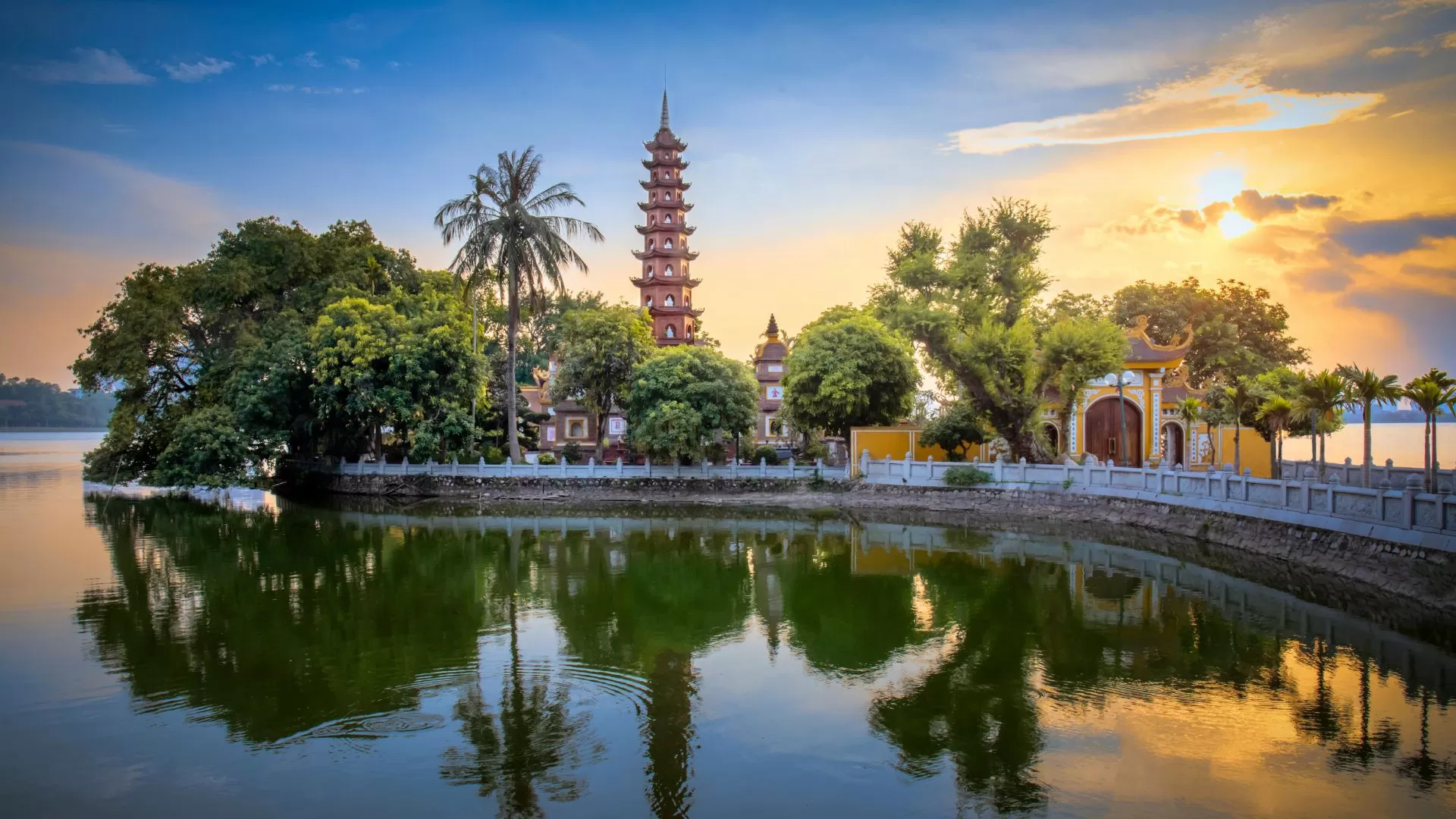
As the oldest pagoda in Hanoi, with a history spanning over 1,500 years, Tran Quoc is an undisputed icon. Its picturesque location on a small island in West Lake and its striking 11-story stupa make it a symbol of the capital. The pagoda grounds also feature a Bodhi tree grown from a cutting of the original tree under which the Buddha attained enlightenment, adding to its immense spiritual significance.
Learn more about Tran Quoc Pagoda.
2. One Pillar Pagoda (Hanoi)
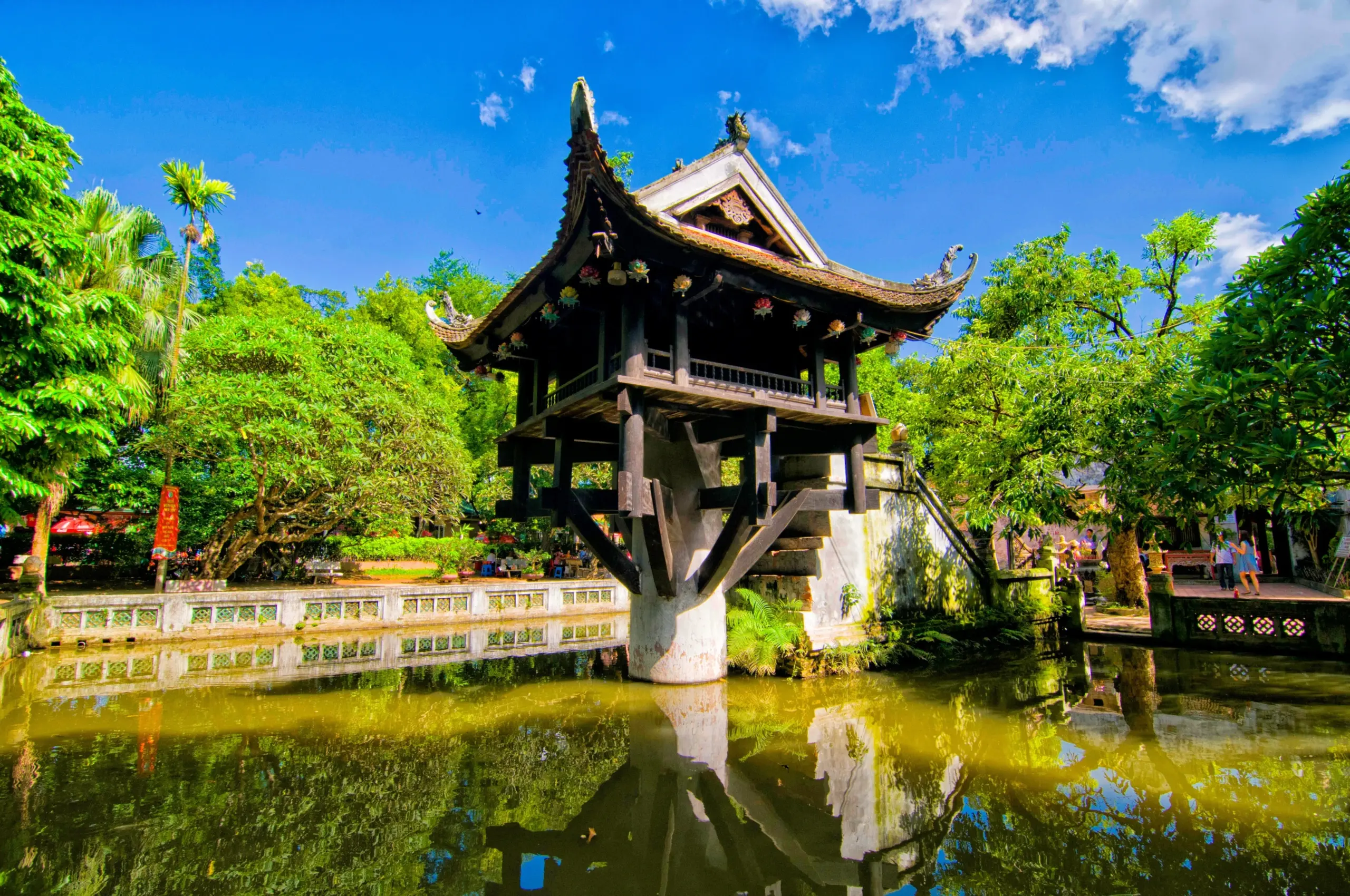
An architectural masterpiece, the One Pillar Pagoda (Chua Mot Cot) is designed to resemble a lotus blossom, the Buddhist symbol of purity, rising from a murky pond. Originally built in the 11th century, this small but profoundly symbolic temple is one of Vietnam’s most iconic sights, representing the nation’s unique aesthetic and deep Buddhist roots.
Learn more about One Pillar Pagoda
3. Quan Su Pagoda (Hanoi)
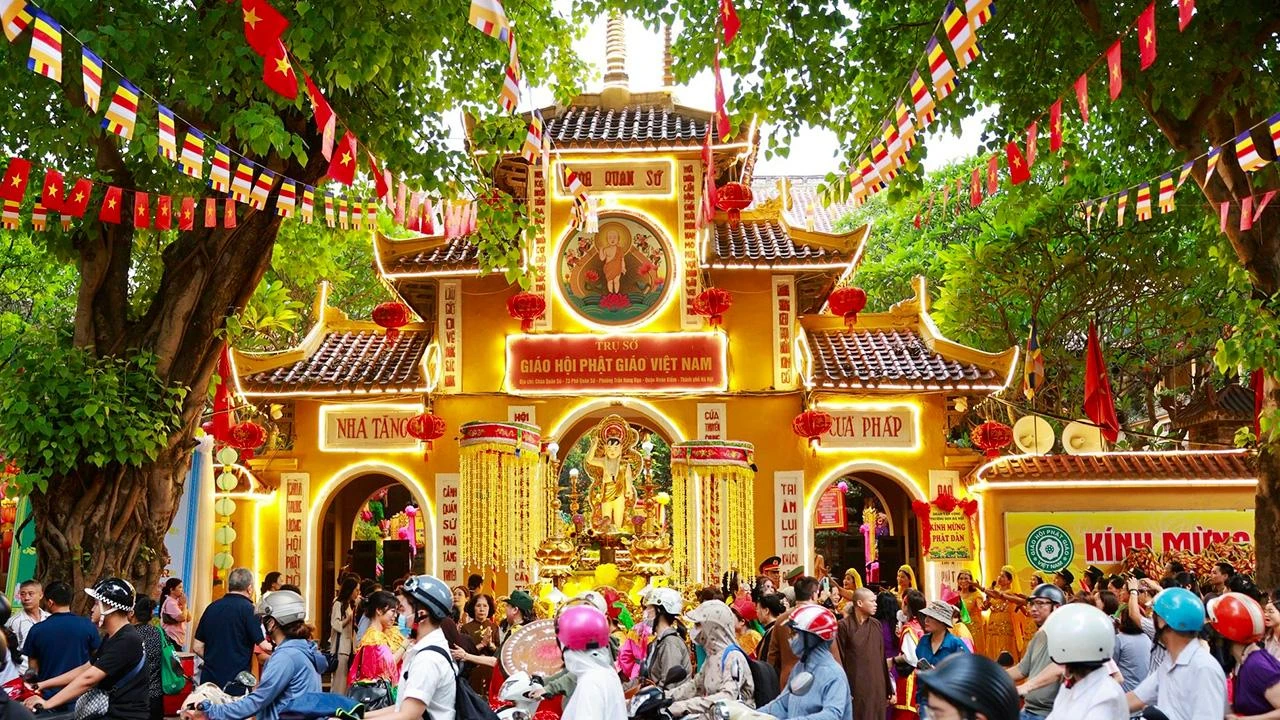
Known as the “Ambassador’s Pagoda,” Quan Su holds a position of immense modern importance. As the official headquarters of the Buddhist Sangha of Vietnam, it is the administrative and diplomatic heart of the faith in the country. A visit here offers a glimpse into the organized, living practice of contemporary Vietnamese Buddhism, right in the bustling center of Hanoi.
Learn more about Quan Su Pagoda
4. Tay Phuong Pagoda (Hanoi Outskirts)
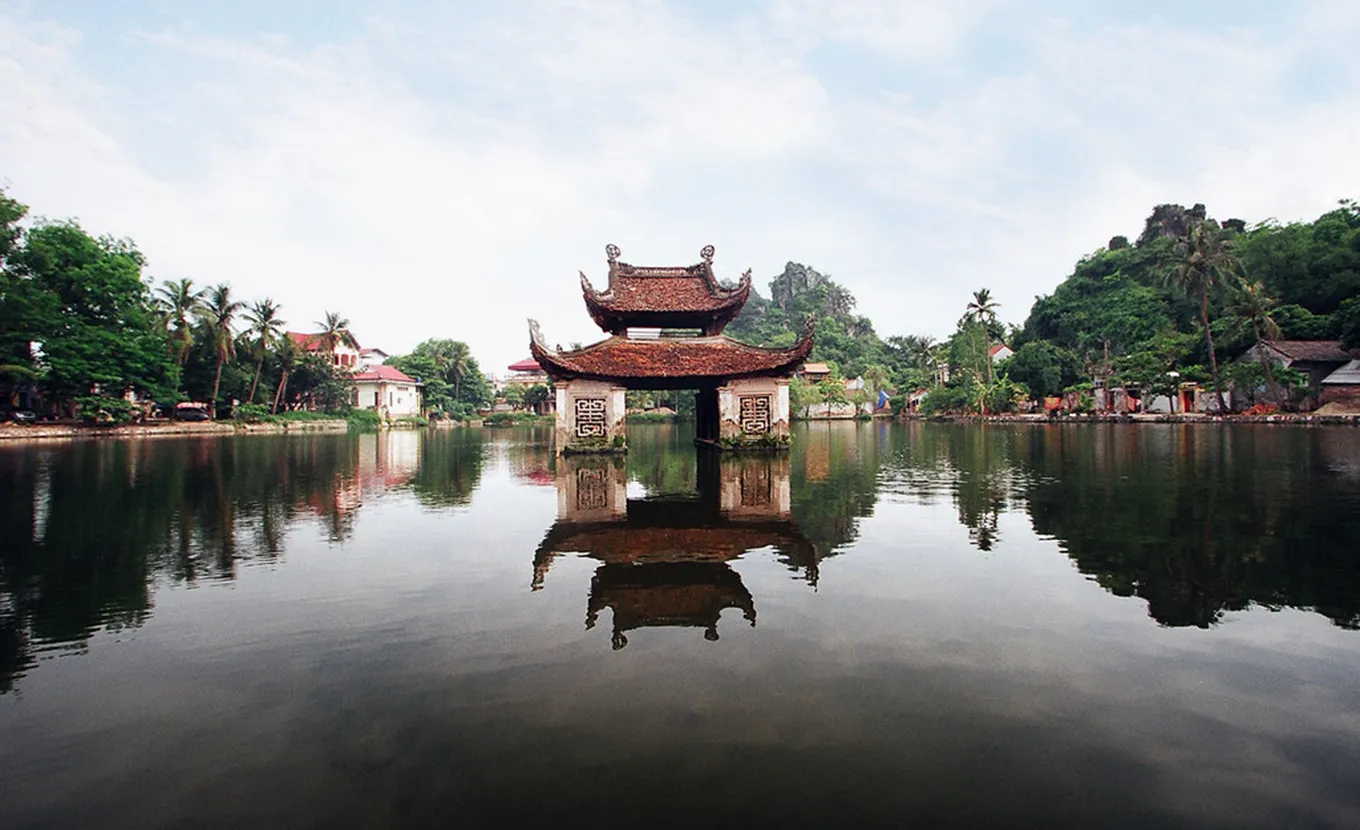
Perched atop a small hill, Tay Phuong Pagoda, or the “Pagoda of the West,” is a treasure trove of religious art. It is most famous for its extraordinary collection of 18 Arhat statues, carved from jackfruit wood in the 17th century. Each statue is a masterpiece of sculpture, depicting the enlightened disciples of Buddha with incredibly vivid and realistic human emotions.
Learn more about Tay Phuong Pagoda
5. Perfume Pagoda (Hanoi Outskirts)
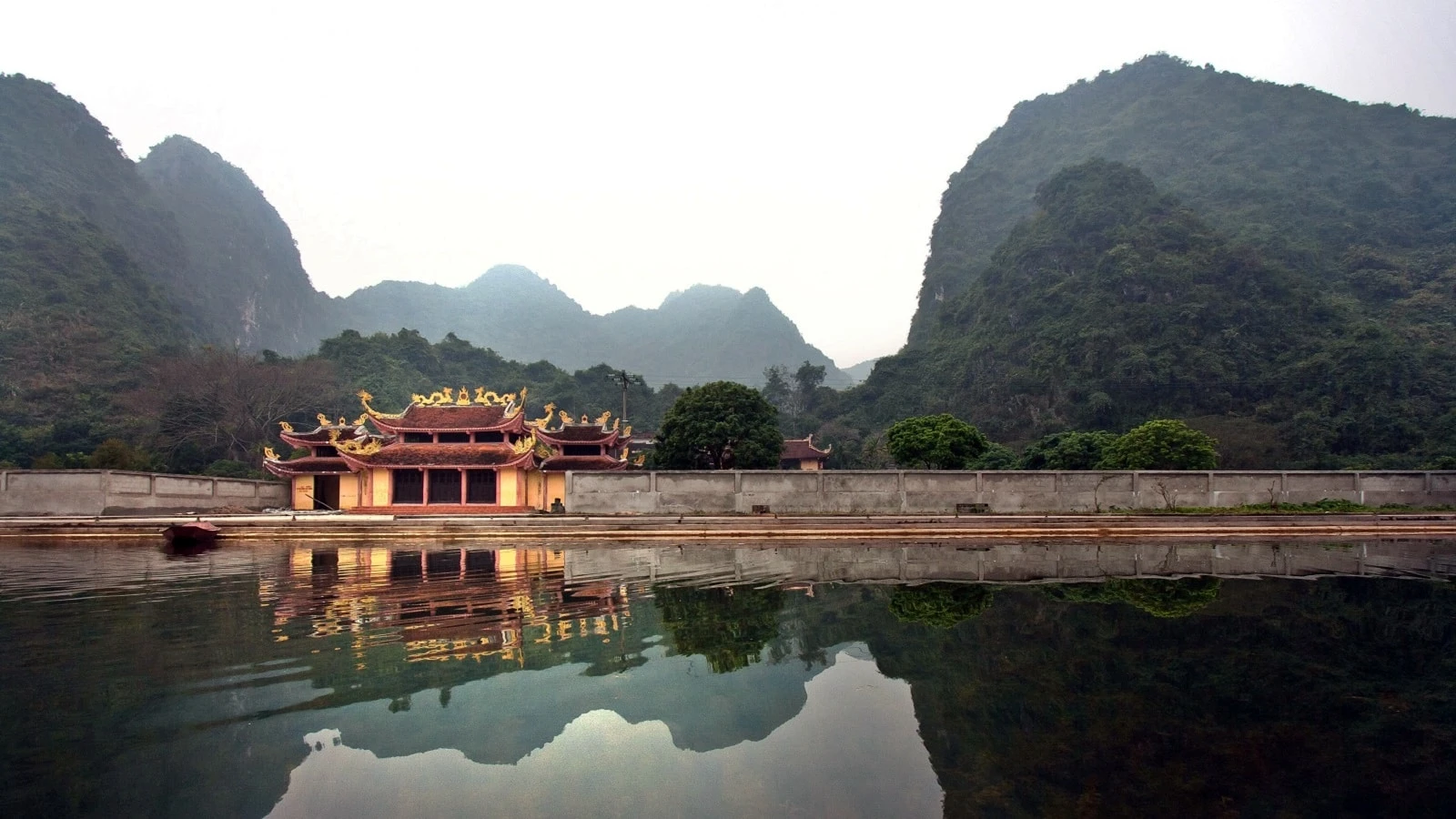
The Perfume Pagoda (Chua Huong) is not a single structure but a vast complex of Buddhist temples and shrines built into the limestone cliffs of Huong Tich Mountain. Reaching the main grotto requires a scenic boat trip followed by a hike or cable car ride. The pilgrimage here is one of the most important in Vietnam, offering a blend of natural beauty and profound devotion.
Learn more about Perfume Pagoda
6. Yen Tu Mountain (Quang Ninh)
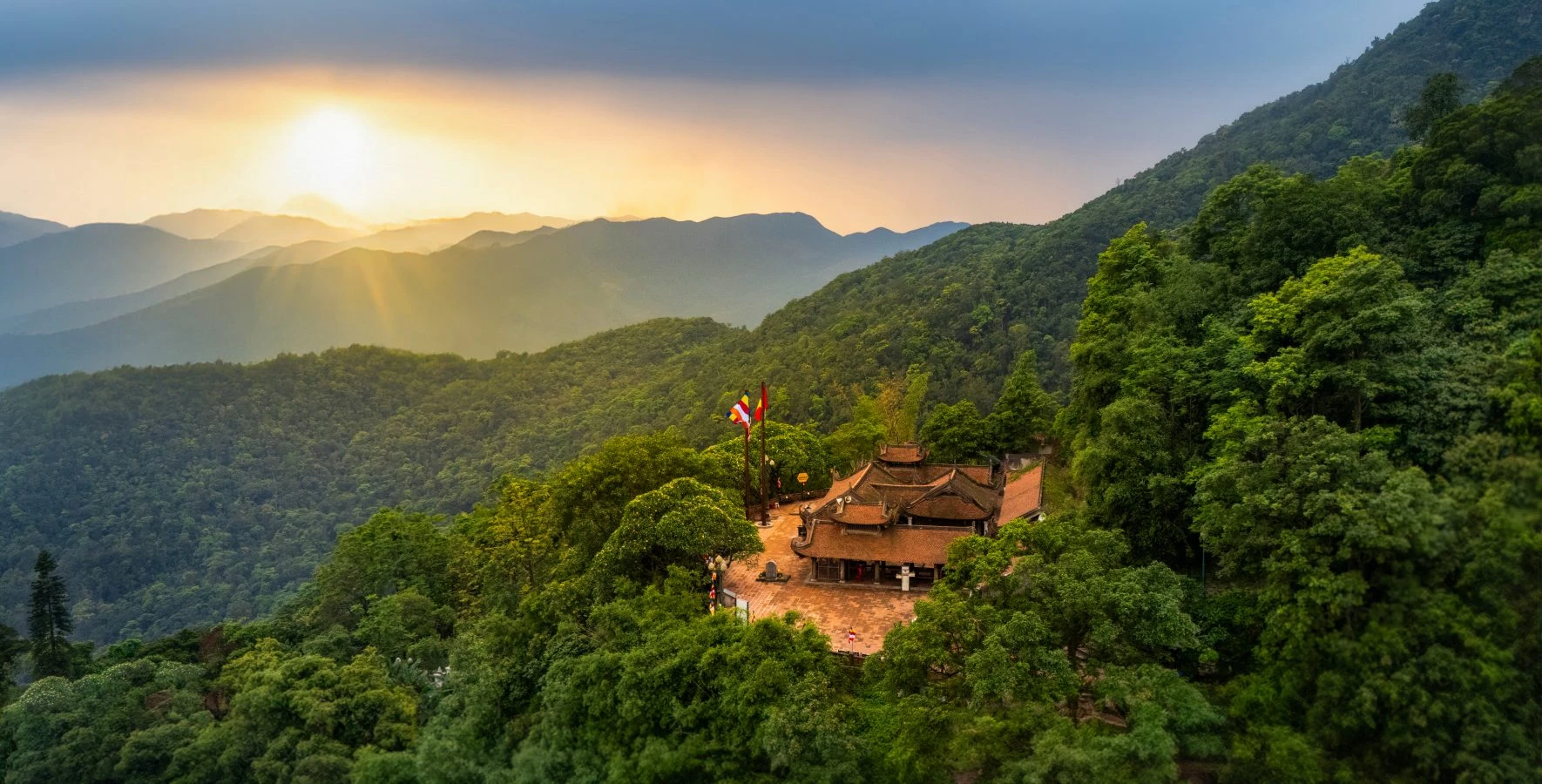
Considered the cradle of Truc Lam Zen Buddhism, the Yen Tu mountain complex is a sacred pilgrimage route. The journey involves ascending the mountain via cable cars and stone steps to a series of pagodas, shrines, and monasteries that culminate in the Dong Pagoda, a bronze temple perched at the 1,068-meter summit. It’s a spiritual journey that beautifully merges faith with nature.
Learn more about Yen Tu Mountain
7. But Thap Pagoda (Bac Ninh)
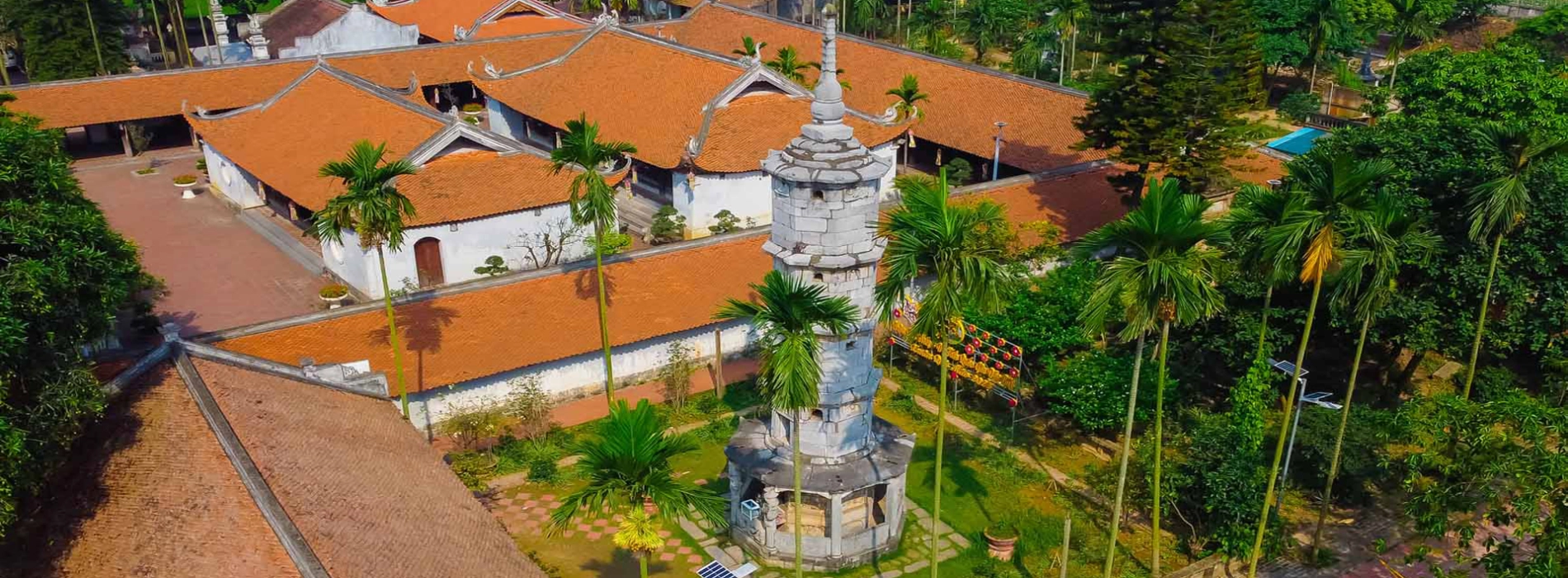
A jewel of the Red River Delta, But Thap Pagoda is renowned for its 17th-century architecture and remarkable works of art. Its most celebrated treasure is the thousand-armed, thousand-eyed Guanyin, a rotating wooden statue that is a national treasure and a pinnacle of Vietnamese religious sculpture. The pagoda’s stone stupas and bridges are also exquisite.
Learn more about But Thap Pagoda
8. Keo Pagoda (Thai Binh)
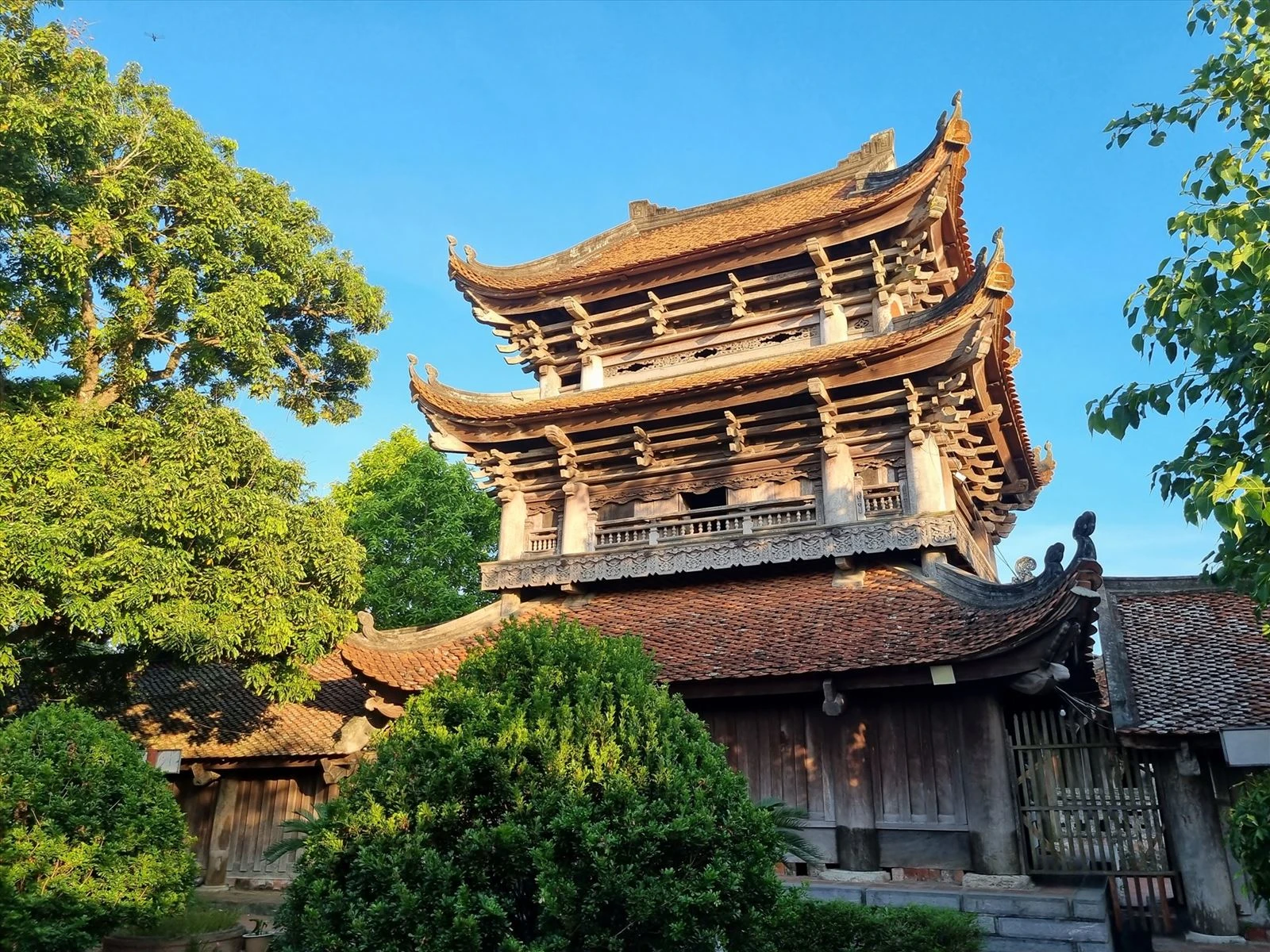
A stunning example of traditional Vietnamese wooden architecture, Keo Pagoda has survived for over 400 years. It is particularly famous for its magnificent three-story bell tower, an intricate wooden structure with gracefully curved roofs that has become a symbol of classical Vietnamese design. The entire complex feels like a step back in time.
Learn more about Keo Pagoda.
9. Bai Dinh Pagoda (Ninh Binh)
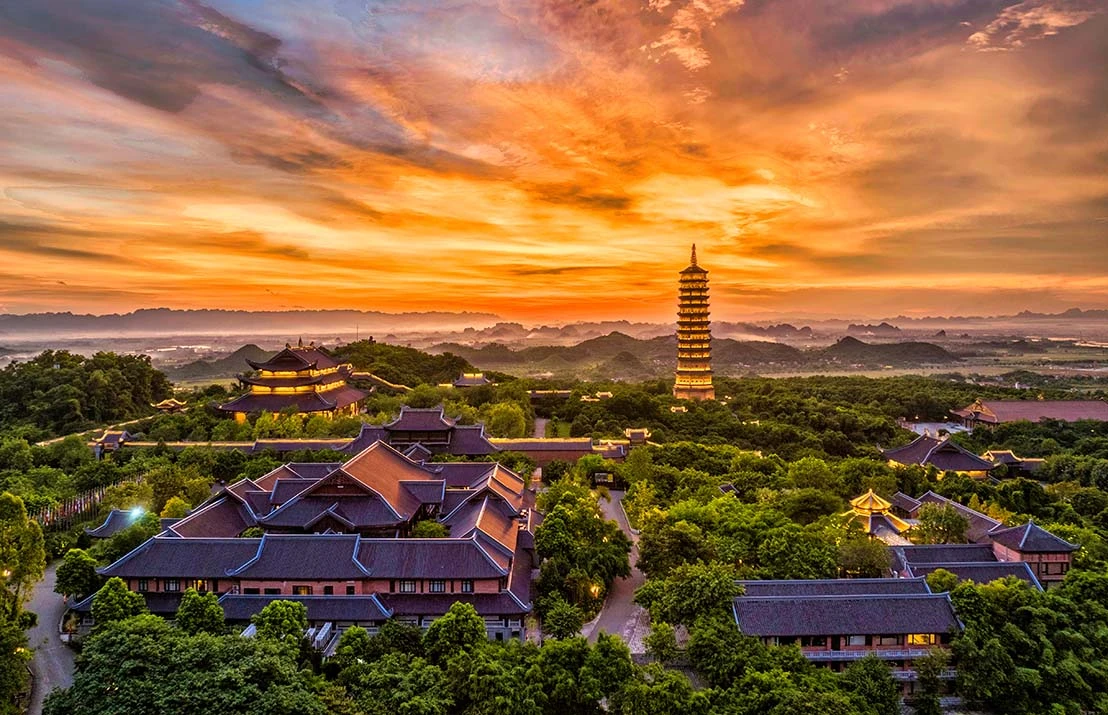
A site of superlatives, Bai Dinh is the largest complex of Vietnamese Pagodas. It features both an ancient temple and a monumental new complex built on a grand scale. It holds numerous records, including the largest bronze Buddha statue in Southeast Asia and the longest corridor of Arhat statues. Set against the stunning limestone karst landscape of Trang An, its scale is simply breathtaking.
Learn more about Bai Dinh Pagoda
Central Vietnam: Imperial Legacy and Coastal Serenity
From the former imperial capital to the stunning coastline, Central Vietnam’s pagodas reflect both royal patronage and resilient faith.
10. Thien Mu Pagoda (Hue)
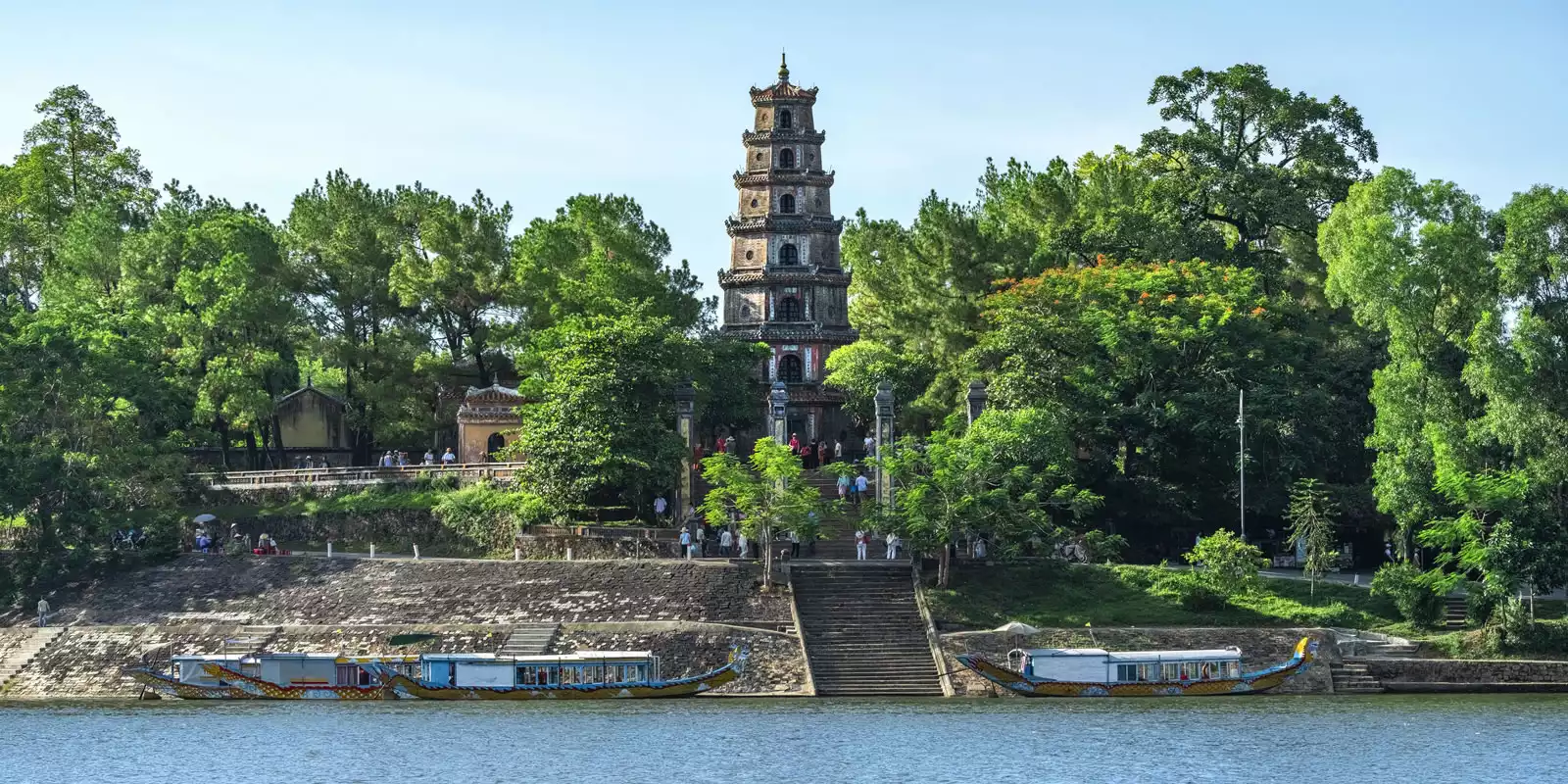
Overlooking the Perfume River, the seven-story Phuoc Duyen tower of Thien Mu Pagoda is the enduring symbol of Hue. Founded in 1601, the pagoda is steeped in legend and history. It remains a powerful political and religious site, famously housing the car of the monk Thich Quang Duc, who self-immolated in 1963 to protest the persecution of Buddhists.
Learn more about Thien Mu Pagoda
11. Tu Hieu Pagoda (Hue)
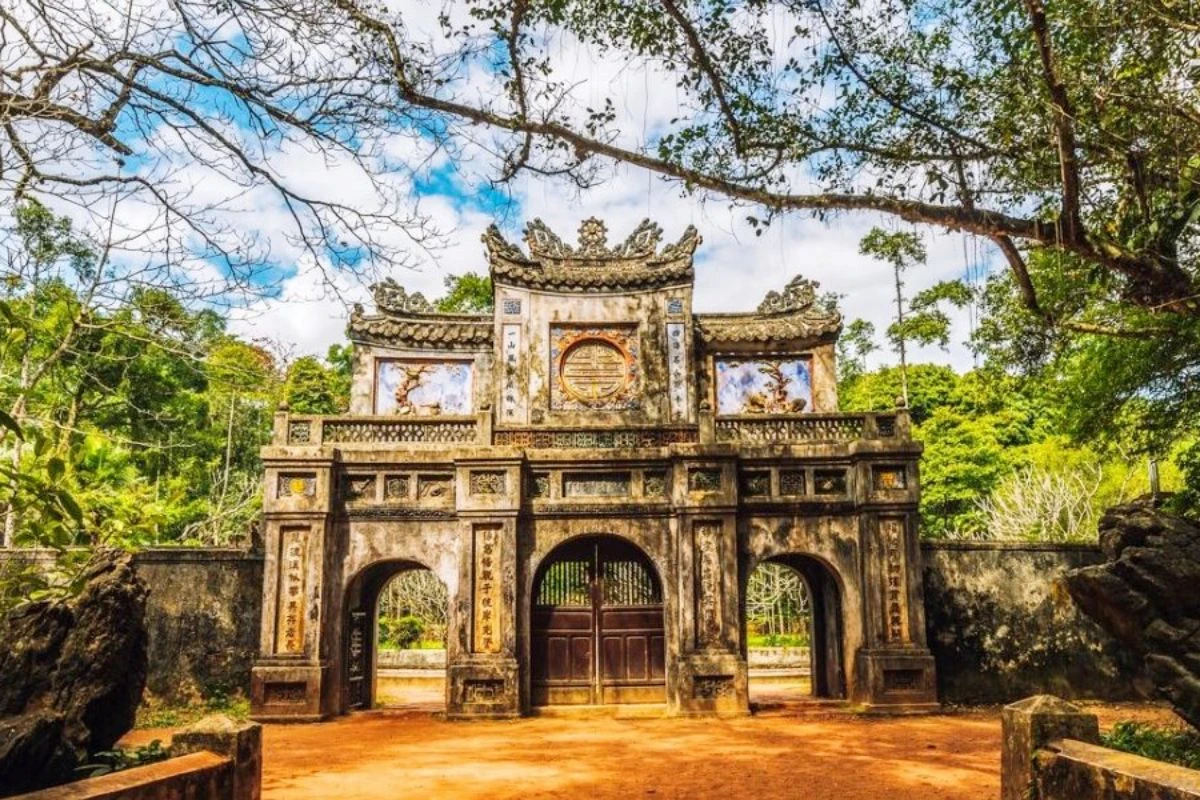
Nestled in a tranquil pine forest, Tu Hieu Pagoda is known for its serene atmosphere and unique history. It was patronized by the eunuchs of the Nguyen Dynasty, and their tombs are located on the grounds. The pagoda is an active monastery, and visitors can often hear the gentle sound of chanting monks, making it a perfect place for quiet contemplation.
Learn more about Tu Hieu Pagoda
12. Linh Ung Pagoda (Da Nang)
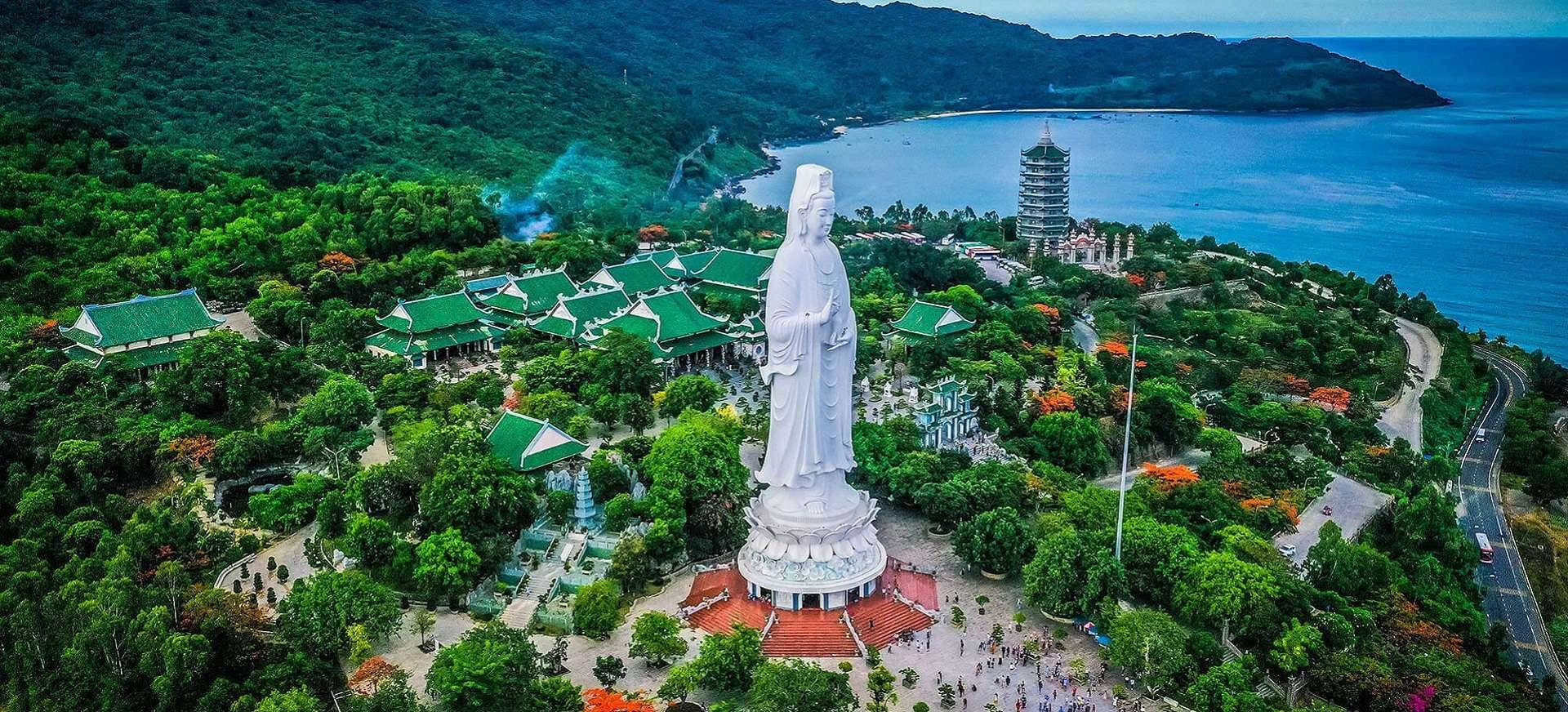
Perched on the Son Tra Peninsula, Linh Ung Pagoda offers spectacular panoramic views of the sea and the city of Da Nang. The complex is dominated by the magnificent 67-meter-tall statue of the Goddess of Mercy (Lady Buddha), the tallest in Vietnam. This modern pagoda is a testament to the continued vibrancy of Buddhism in the region.
Learn more about Linh Ung Pagoda
13. The Marble Mountains (Da Nang)
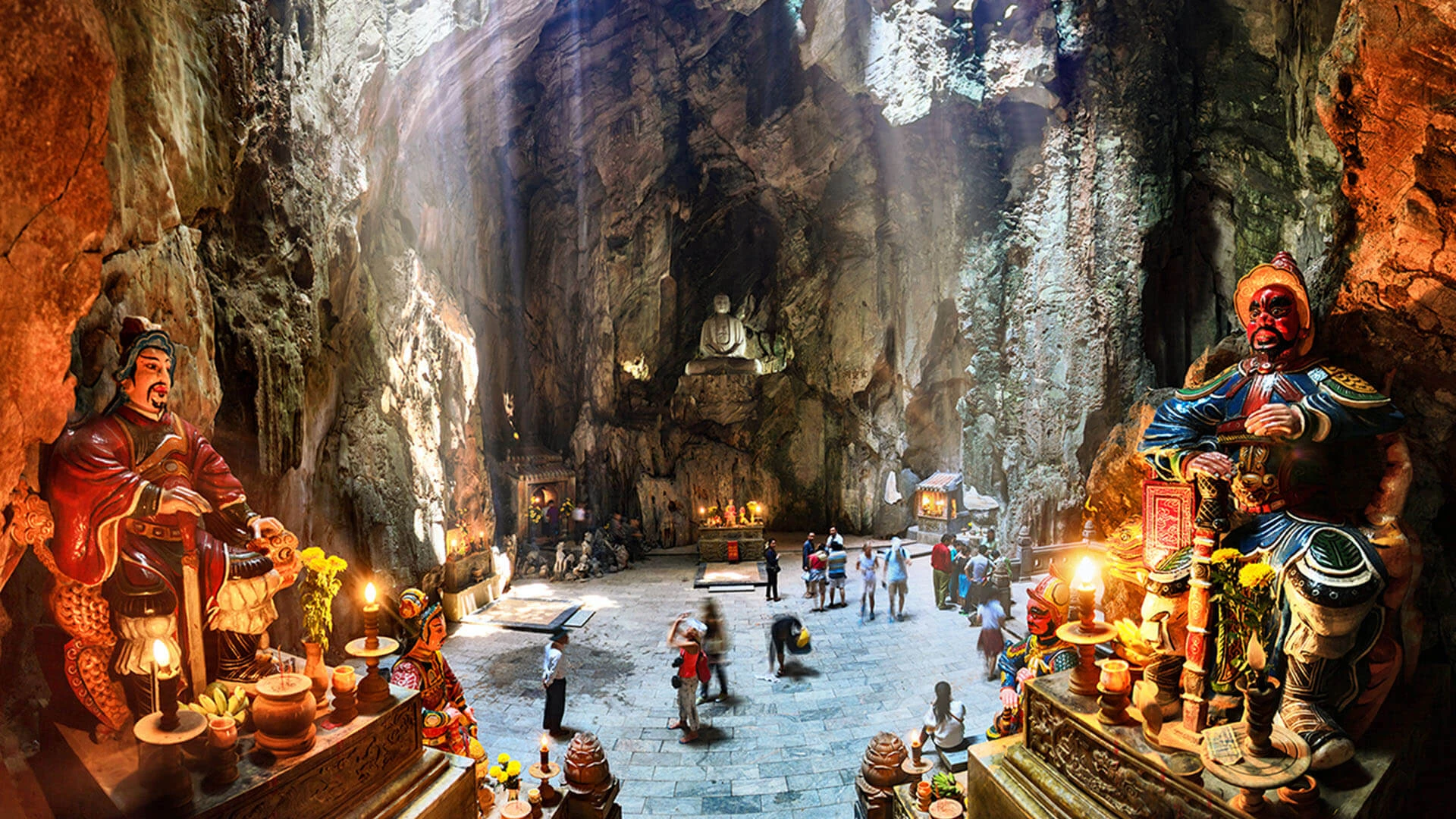
Ngu Hanh Son, or the Marble Mountains, is a cluster of five limestone and marble hills representing the five elements. This sacred site is a natural wonderland riddled with caves, grottoes, and tunnels, many of which house beautiful Buddhist and Hindu shrines. Climbing the steps to explore the pagodas within these mystical caves is an unforgettable experience.
Learn more about Marble Mountains
14. My Son Sanctuary (Quang Nam)
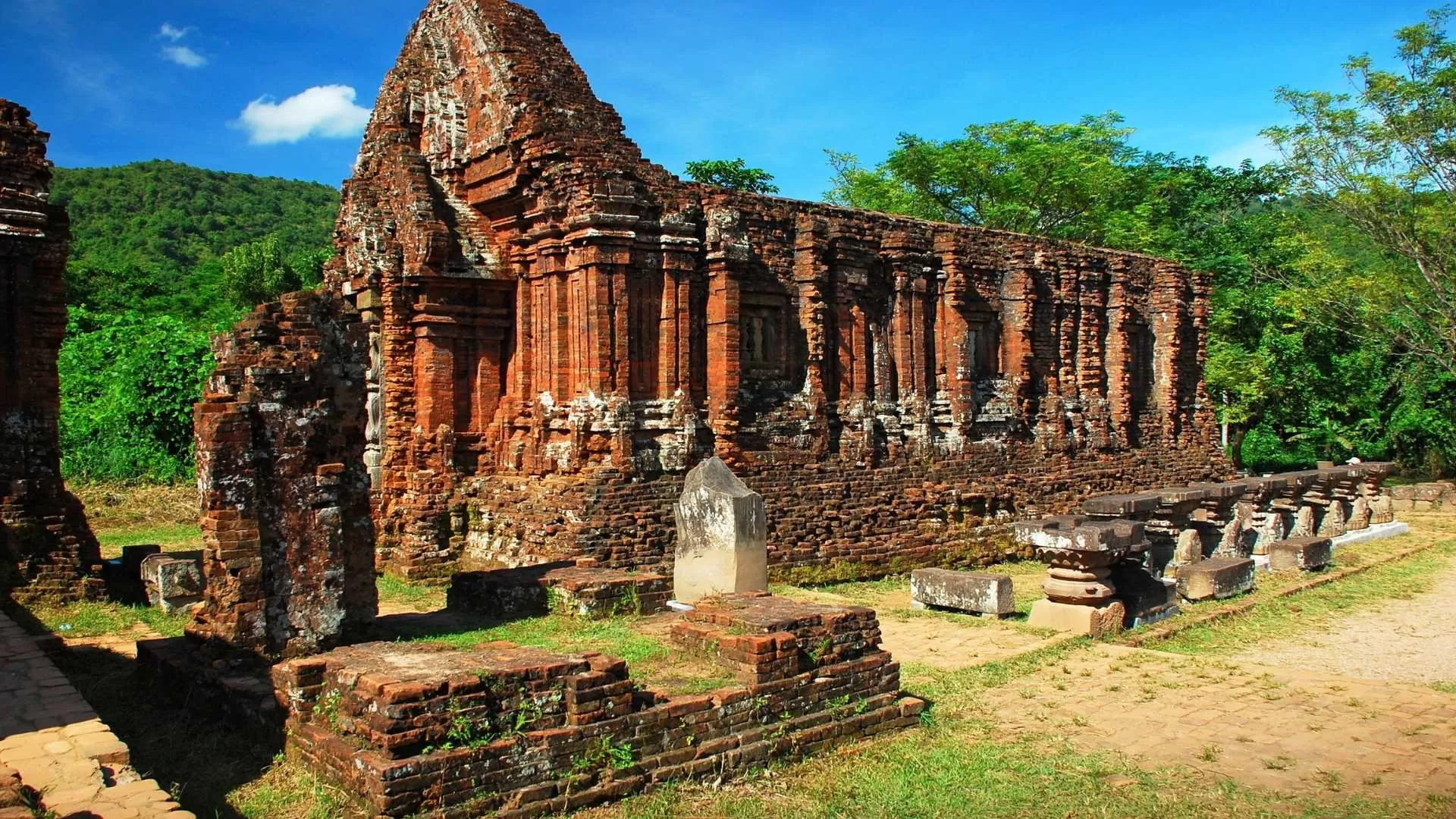
While not a Buddhist pagoda, this UNESCO World Heritage Site is essential for any culture seeker. My Son is a cluster of abandoned and ruined Hindu temples constructed between the 4th and 14th centuries by the Champa Kingdom. It provides crucial historical context to the religious landscape of ancient Vietnam before Buddhism became the dominant faith.
Learn more about My Son Sanctuary
South Vietnam & HCMC: A Fusion of Cultures
The pagodas of the south showcase a dynamic blend of Vietnamese, Chinese, and Khmer influences, reflecting the region’s diverse history.
15. Jade Emperor Pagoda (Ho Chi Minh City)
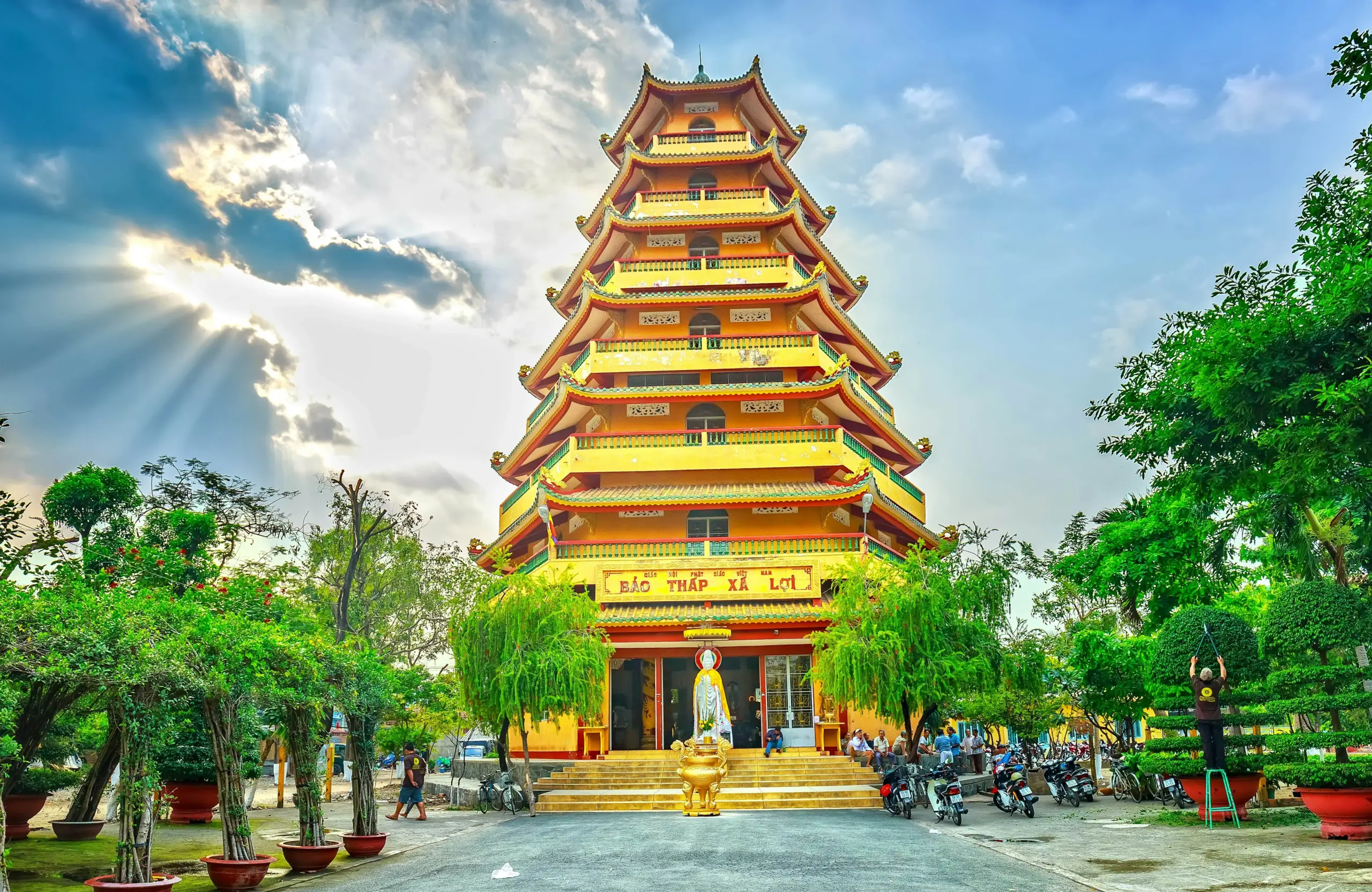
Made famous internationally by U.S. President Barack Obama’s 2016 visit, this Taoist pagoda is one of the most atmospheric places of worship in the city. Filled with the sweet haze of incense, it features intricate carvings and fantastical statues of deities and heroes from Chinese mythology, offering a vivid glimpse into syncretic folk beliefs.
Learn more about Jade Emperor Pagoda
16. Buu Long Pagoda (Ho Chi Minh City)
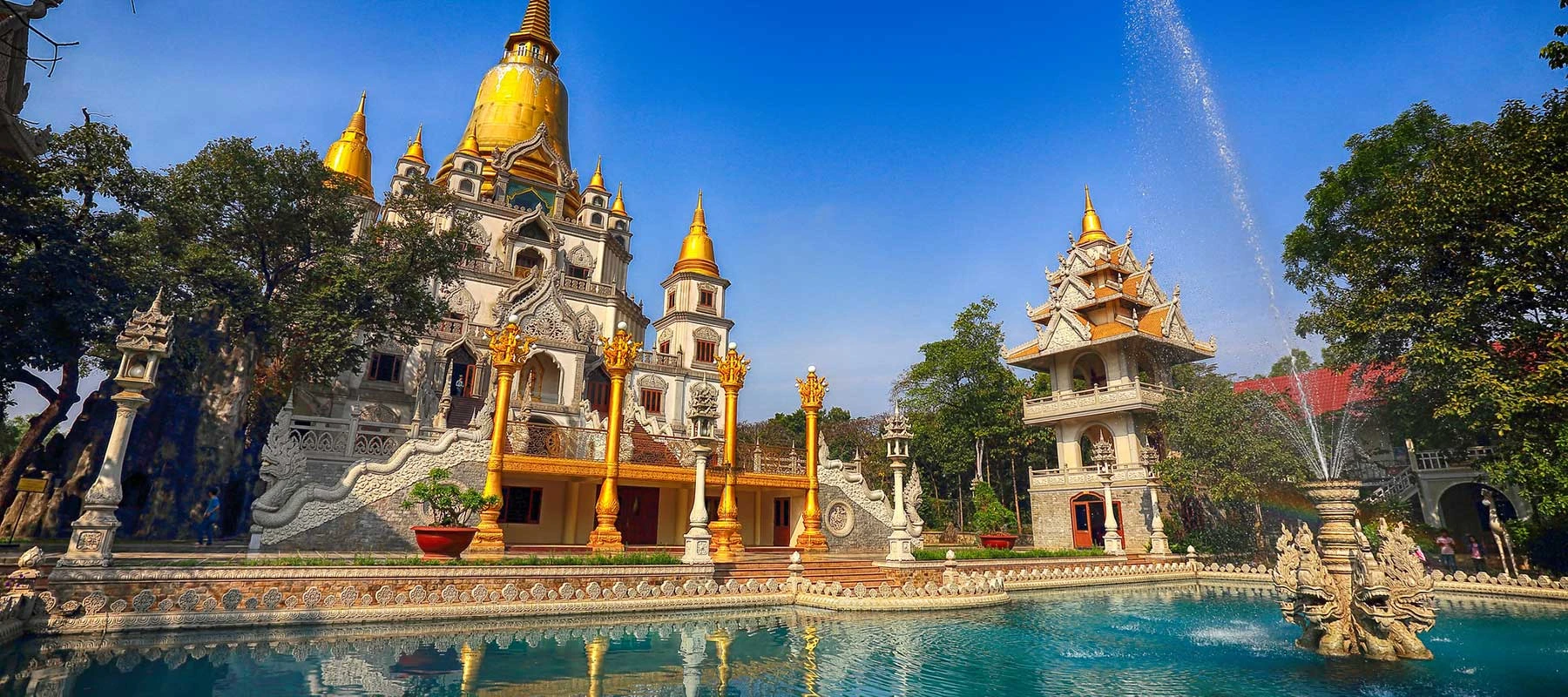
A stunning architectural outlier, Buu Long Pagoda stands out with its intricate spires and pristine white walls, drawing inspiration from Thai, Indian, and Vietnamese designs. Its unique, palace-like appearance and the large, turquoise-colored stupa make it one of the most visually impressive modern temples in Vietnam and a peaceful escape from the city.
Learn more about Buu Long Pagoda
17. Cao Dai Temple (Tay Ninh)
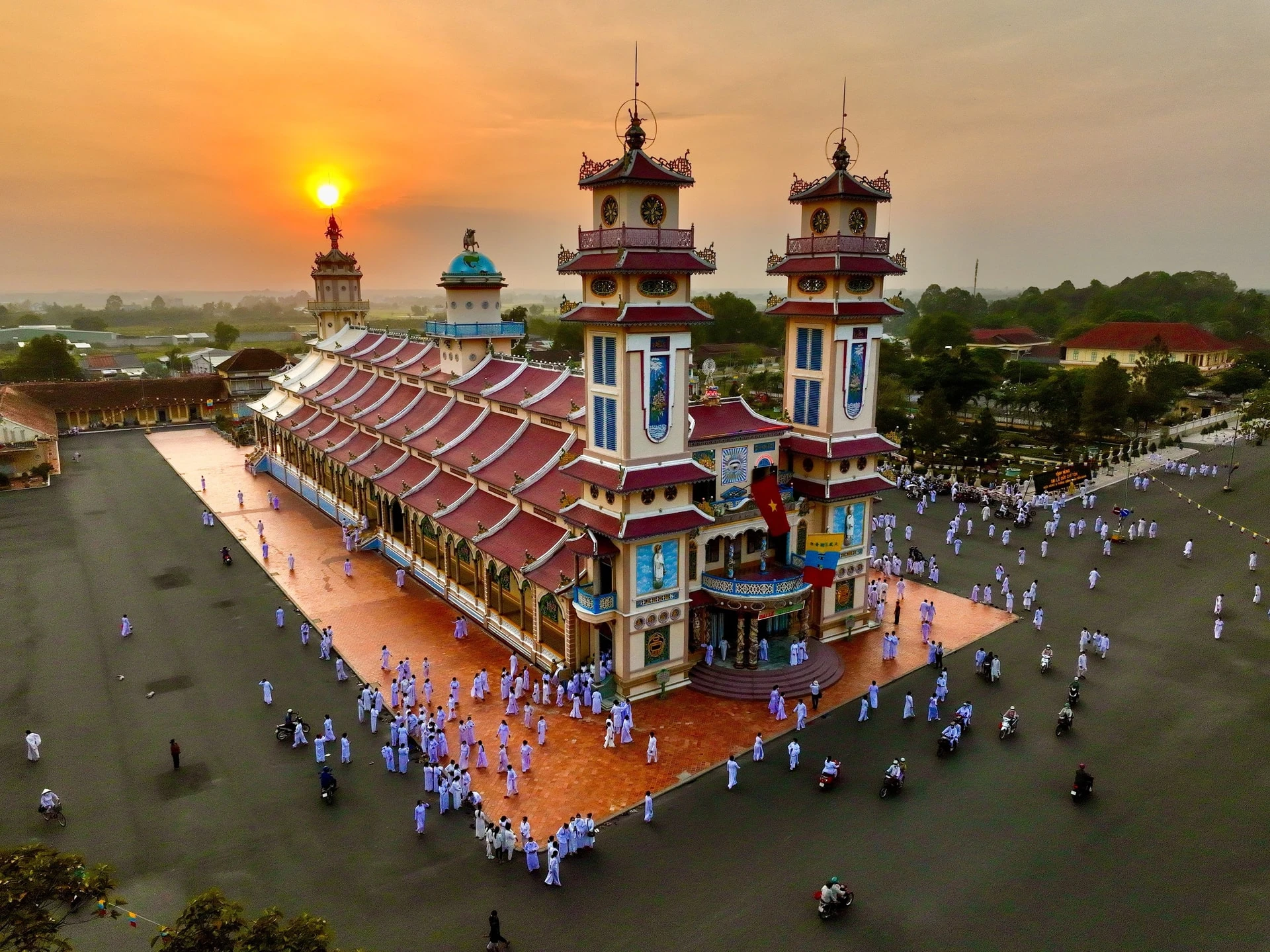
The Great Temple of the Holy See in Tay Ninh is the headquarters of the unique Cao Dai religion, which synthesizes elements of the world’s major faiths. The temple’s architecture is as vibrant and eclectic as the religion itself, featuring a Technicolor interior with dragon-wrapped pillars and a divine eye watching over the main hall. Attending a prayer ceremony here is a truly singular cultural experience.
Learn more about Cao Dai Temple
18. Vinh Trang Pagoda (My Tho, Mekong Delta)
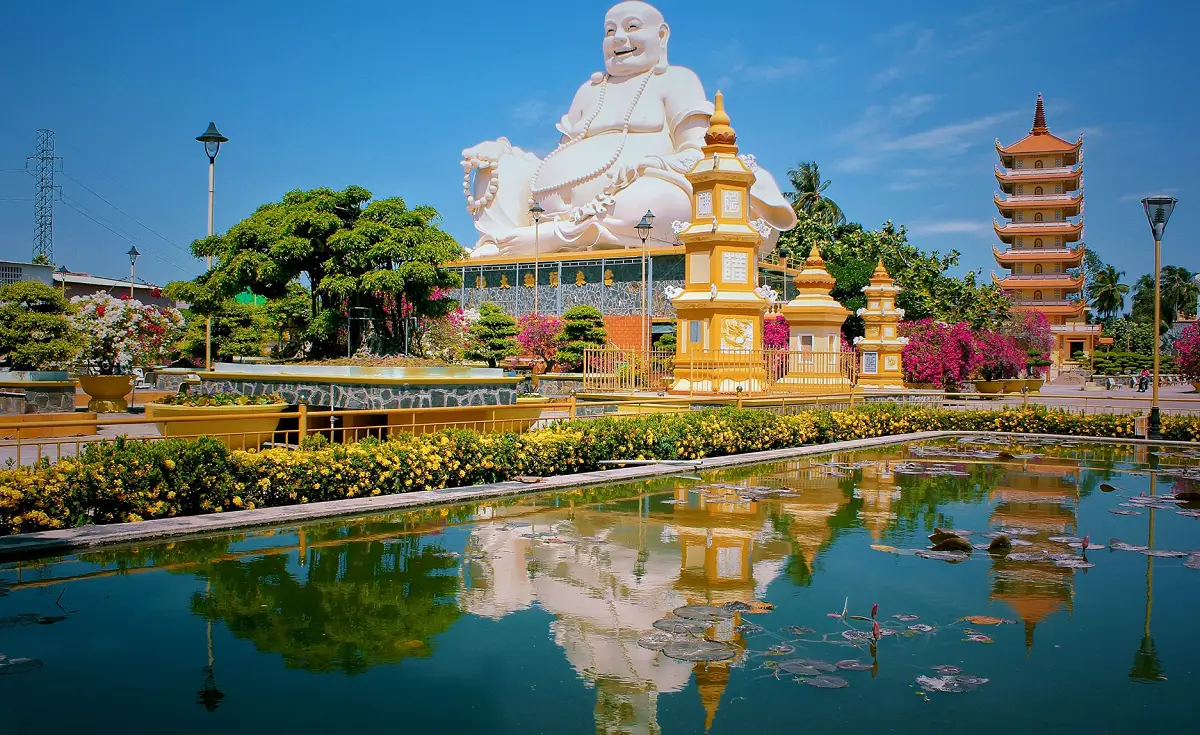
Located near the gateway to the Mekong Delta, Vinh Trang Pagoda is a beautiful testament to cultural fusion, blending Vietnamese, Chinese, and Khmer architectural styles. The sprawling complex is noted for its ornate gates, detailed facade, and giant statues of the standing, sitting, and reclining Buddha set amidst lush gardens.
Learn more about Vinh Trang Pagoda
19. Ba Chau Doc Temple (An Giang)
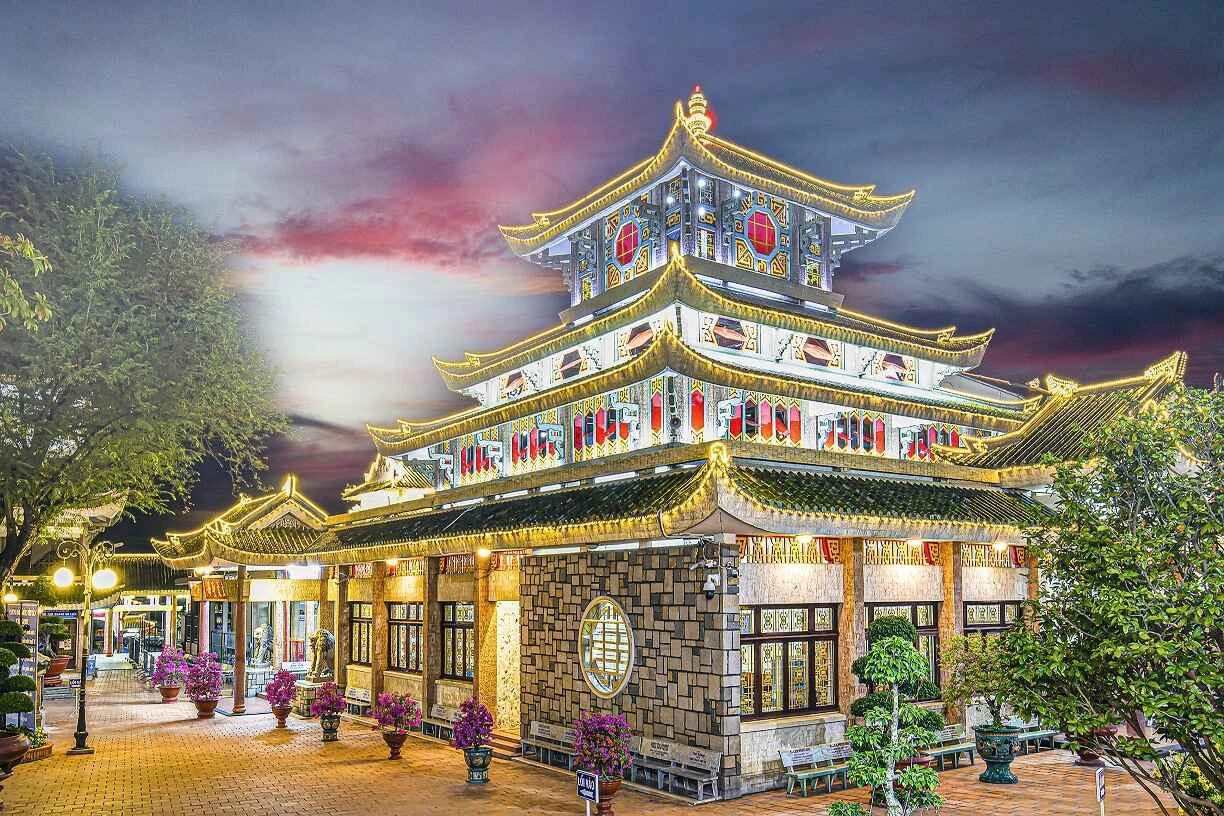
Perched at the foot of Sam Mountain, the Temple of Lady Chua Xu is one of the most important folk religion sites in the Mekong Delta. While not a Buddhist pagoda, it attracts millions of pilgrims who come to pray to a legendary statue of a local goddess for health and prosperity, showcasing the deep spiritual traditions of the region.
Learn more about Ba Chau Doc Temple
20. Som Rong Pagoda (Soc Trang)
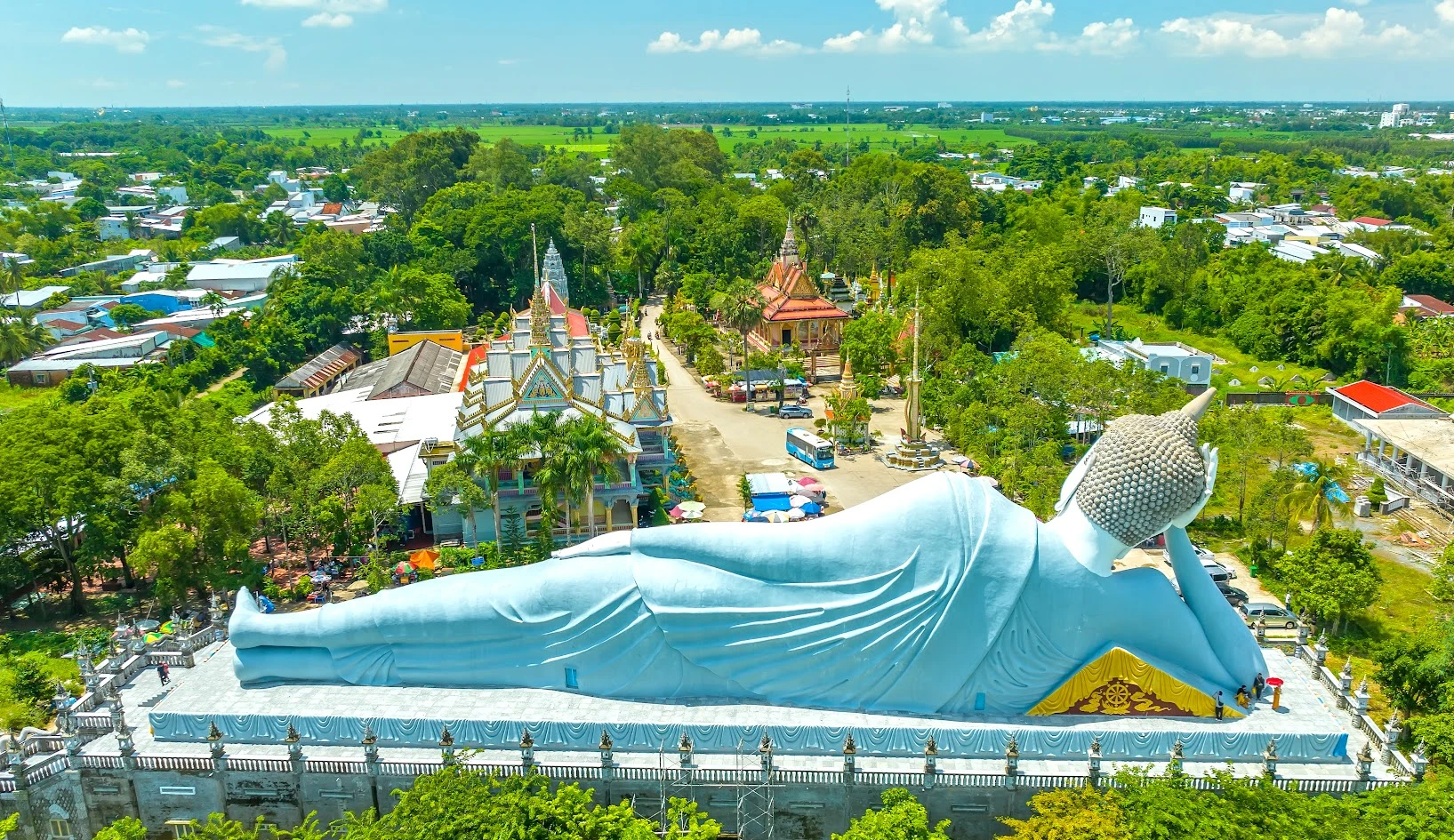
A dazzling example of Khmer Buddhism in the Mekong Delta, Som Rong Pagoda is famous for its intricate, brightly colored architecture and, most notably, its colossal 63-meter-long reclining Buddha statue. The beauty and scale of the pagoda offer a fascinating insight into the rich culture of the Khmer people in southern Vietnam.
Learn more about Som Rong Pagoda
Your Journey Awaits
The Vietnamese Pagodas are far more than a list of tourist destinations; they are portals to the past and sanctuaries for the soul. Each site offers a unique story, a distinct architectural style, and a special atmosphere of peace. Whether you seek historical knowledge, artistic inspiration, or a moment of quiet reflection, these 20 sacred places provide a profound and enriching path into the heart of Vietnamese culture.
Your Vietnam adventure awaits. Discover it with Wigo Tourist
